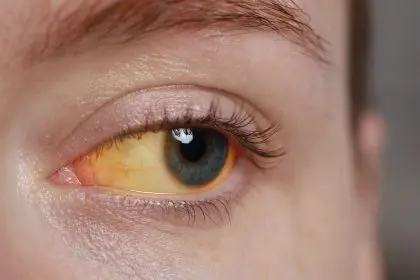The evolution of creatine from a gym-bag staple to a potential mental health ally represents one of the most intriguing developments in wellness supplementation. While its reputation was built on muscle gains and athletic performance, emerging research suggests this versatile compound might play a crucial role in supporting mental well-being, particularly in managing depression symptoms.
The brain-body connection
Deep within the intricate biochemistry of both muscles and neural tissue lies creatine, a compound that straddles the worlds of physical and mental performance. This naturally occurring substance, synthesized daily by the body’s own chemical factories – the liver, pancreas, and kidneys – appears to play a far more sophisticated role in human health than previously understood.
Redefining mental health support
Recent scientific investigations have illuminated creatine’s potential as a supporting player in mental health treatment. Clinical studies examining its effects on individuals battling depression have yielded promising results, particularly when combined with traditional therapeutic approaches. This dual-action approach suggests a new paradigm in mental health support.
The biochemistry of mood
The relationship between creatine and mental well-being appears rooted in fundamental cellular energetics. Neural tissue, among the body’s most energy-demanding systems, relies heavily on efficient energy production and utilization. Creatine’s role in cellular energy systems may explain its potential impact on mood regulation and cognitive function.
Beyond traditional approaches
The integration of creatine into mental health protocols represents a shift toward more comprehensive treatment strategies. Modern approaches increasingly recognize the interconnected nature of physical and mental wellness, with creatine potentially serving as a bridge between these domains.
The science of supplementation
Understanding how to effectively incorporate creatine for mental health support requires attention to several key factors:
Dosage consistency: Regular, measured supplementation proves more effective than sporadic intake, allowing for stable creatine levels in both muscle and neural tissue.
Quality considerations: Selecting pharmaceutical-grade creatine ensures optimal purity and effectiveness, minimizing potential complications from inferior products.
Integration strategies: Combining creatine supplementation with existing mental health protocols requires thoughtful coordination with healthcare providers.
Comprehensive benefits profile
The advantages of creatine extend beyond its potential mental health applications:
Cognitive enhancement: Improved memory and processing speed support overall mental function, particularly during periods of stress or fatigue.
Energy regulation: Stable energy levels throughout the day may help maintain consistent mood states and cognitive performance.
Physical resilience: Enhanced physical capability can support overall well-being and stress management.
Gender considerations
The benefits of creatine appear to transcend gender differences, with research indicating positive effects across demographic groups. Women, in particular, may find unique advantages in creatine supplementation, both for physical performance and potential mental health support.
Quality and selection criteria
When considering creatine supplementation, several factors warrant careful attention:
Manufacturing standards: Third-party testing and certification ensure product quality and safety.
Form selection: Creatine monohydrate remains the most thoroughly studied and reliable form.
Purity verification: Independent laboratory testing confirms the absence of contaminants and verifies potency.
Implementation strategies
Incorporating creatine into a mental wellness routine requires thoughtful planning:
Timing considerations: Consistent daily supplementation proves more effective than timing around specific activities.
Integration methods: Combining creatine with other health-supporting practices maximizes potential benefits.
Progress monitoring: Regular assessment of both physical and mental well-being helps track effectiveness.
Future implications
The emerging understanding of creatine’s role in mental health opens new possibilities for integrated wellness approaches. As research continues, we may discover additional applications and benefits of this versatile compound.
Safety and sustainability
While creatine’s safety profile is well-established, approaching supplementation with informed consciousness remains crucial. Regular consultation with healthcare providers ensures optimal integration with existing treatment protocols.
The path forward
The exploration of creatine’s mental health benefits represents a promising frontier in wellness research. This evolving understanding suggests potential new approaches to supporting mental well-being through targeted supplementation.
The intersection of physical and mental health continues to yield fascinating insights into human wellness. As our understanding of creatine’s diverse roles grows, its potential as a supporting element in mental health care becomes increasingly compelling. This evolution in perspective offers hope for more comprehensive approaches to mental wellness, combining traditional therapeutic methods with evidence-based supplementation strategies.













